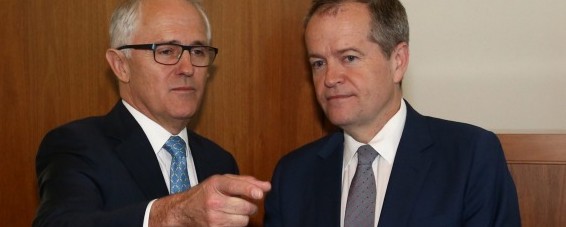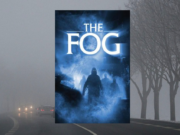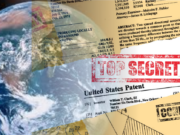 By James O’Neill*
By James O’Neill*
At the official launch of the Liberal Party campaign last Saturday, and ad nauseam ever since, Malcolm Turnbull seized on the Brixit referendum result to urge voters to not risk the chaos and instability of any other party than his being returned to power on 2 July 2016.
Perhaps the safest bet in politics is that regardless of external events, the conservative party will always argue that re-electing them is the safest and best option in these “uncertain times.”
If the “Remain” vote had succeeded in the UK would Turnbull have produced a different slogan? Hardly.
The basis of the claimed “chaos” and “instability” of the Labor years in power 2007-2013 rests upon two changes of Labor leadership in that six-year period. Whether that constitutes “instability” is a moot point.
During the first three of these years Labor had a comfortable majority in the House and managed to get most of its legislative program through the Senate. Gillard replaced Rudd in the course of that first three-year term and she went on to form a government after the 2010 election.
While it is true that she relied on the votes of the Greens and several independents, that parliament ran its full term and again had a successful legislative program.
The history of legislation in the Senate was similar. Again, Labor relied upon a mixed bag of Green, PUP and independent Senators to get legislation through. Quite how that record constitutes “chaos: and “instability” is unclear.
What Turnbull and the Liberals are implicitly relying upon therefore (apart from an uncritical mainstream media) is the instability alleged to have arisen from two changes of Labor leadership within that six-year parliamentary period.
If we had a msm that actually performed its proper function, then a similar spotlight would be turned on the Liberal-National Coalition and its record past and present.
After the long continuity of the Howard years, (1995-2007) the Liberals were not exactly models of stability. Brendan Nelson was leader of the Liberals from 2007-2008. He was replaced by Malcolm Turnbull 2008-2009. Turnbull in turn was replaced by an internal party coup by Tony Abbott from 2009-2015.
The Abbott years were characterized by a relentless negativity that did much to undermine faith in the parliamentary process, particularly when he and his party shamelessly resiled from a raft of pre-2013 election pledges. He also did more than any other post-war leader to divide the nation, pursuing a narrow and fundamentalist agenda at odds with the majority of the electorate. Hardly a recipe for social cohesion and stability.
The reactionary, divisive, autocratic and intellectually dishonest regime of Abbott was brought to an end with yet another Liberal Party coup, this one marking the return of Malcolm Turnbull.
The first coup against Turnbull in 2009 appears to have been because Turnbull was too much of the small ‘l’ Liberal for the taste of the majority of his colleagues. It is a lesson he obviously learned, because the Turnbull period of prime ministership has been marked by a steady retreat from every small ‘l’ liberal principle he had previously embraced.
The public clearly recognise this volte-face for what it was, an unprincipled grab for power in which promises were made to the reactionary rump of the party in exchange for their support in overthrowing Abbott. There is a well-known play whose main character is Dr Faustus on precisely this phenomenon.
Such changes of leadership and principles are apparently chaos and instability when they occur in the Labor Party, but not so when they occur in the Liberals.
Turnbull, as a matter of demonstrable fact, leads a deeply divided party. A significant fraction is openly divided on the issue of recognizing same-sex marital unions. Several prominent members of the reactionary rump such as Bernardi and Morrison have refused to confirm that they will even be bound by the results of the plebiscite/referendum.
It raises the obvious question of why spend $160 million on what is bound to be a campaign marked by bigotry and homophobia (not to mention chaos and instability) when there is no assurance that the public’s wishes will even be acknowledged.
A similar core of scientific Neanderthals resists the evidence on climate change, renewables, the Great Barrier Reef and countless other scientific based issues. Notwithstanding Turnbull’s alleged support for innovation and agility, the science budgets have been slashed.
Education policy that should have been the centerpiece of an innovative progressive nation is a shambles. Clearly applicable role models such as Finland have been ignored. The clearest policy seems to be continued support for the privileged who attend private schools, again contrary to notions of equality and fairness.
The NBN, which under Turnbull’s leadership, first as Minister and now as Prime Minister, has turned into an expensive shambles. Australia is steadily sliding down the international rankings of Internet competitiveness and modernity to now rank 60th in the world. Rural electorates are not the only ones to resent the chaos and instability of the Liberal NBN policy.
All of this is well known and manifestly obvious to those who rely on other than the Murdoch and Fairfax media for their information. It does not even include the deep divisions between the Liberal and National parties whose self-serving preference deals inhibit the growth of truly progressive parties and policies.
The latter party, which enjoys 4% of the primary vote nationwide, exerts a reactionary influence way in excess of its actual degree of public support.
There are numerous other policy areas where the Liberal/National policy options ensure chaos and instability, but the point has been made.
Quite apart from the astonishing arrogance and hubris represented by the “vote for us or its chaos” message from Turnbull, such a claim does not pass even the most elementary fact check.
It is strongly to be hoped that the voters will firmly reject this the manifest nonsense of Turnbull’s self-serving claims.
* Barrister at Law. He may be contacted at joneill@qldbar.asn.au
Adapted Photo: Andrew Meares






























One fact I omitted to mention. Gillard was actually Prime Minister for a longer period than Abbott.
James, you will be glad to know that “Vote for whoever will close the camps” is an option on this hilarious How-To-Vote card:
https://www.theguardian.com/commentisfree/2016/jul/01/election-time-let-snitty-the-psephological-cassowary-tell-you-how-to-vote?CMP=share_btn_link
Mary, our treatment of refugees makes me angrier than any other issue this election. Tweedledee and Tweedledum are equally culpable. It is a blot on our international reputation which can ill afford any more bad publicity after the debacles in foreign policy from Vietnam onwards.
James, re Treatment of refugees. If the EU,UK, USA and its “friends and allies” would stop meddling in conflicts, wanting regieme change, stop supplying arms, etc. there would be no reason for people to flee their homes, jobs, & become refugees, etc. Australia should have its own indepedent Foreign Policy and not trot overseas (when PM) to take orders!
Frances, I could not agree more. Wars created by western nations are the single greatest driver of refugees. Australia has been involved in several; Vietnam, Afghanistan, Iraq and now Syria. It tacitly or explicitly supports the actions of others, including for example Israel and Saudi Arabia that create misery and more refugees in Palestine and Yemen most recently.
Tonight’s election result shows that we will get more of the same from our government because they both sing from the same pro-war song sheet.
We used to have Tweedledum and Tweedledee. Now we have Pot and Kettle.
At least we don’t have pressure cooker.